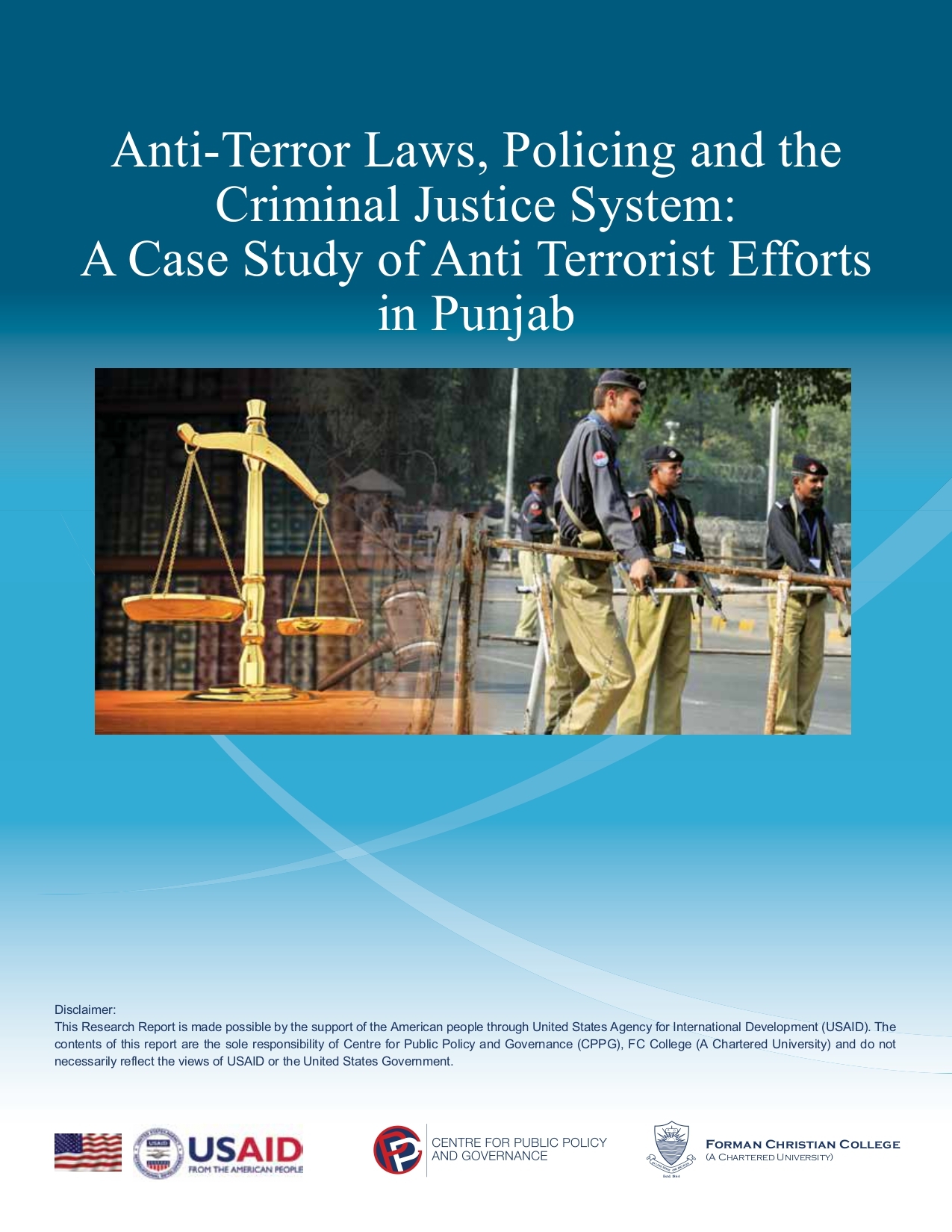
Foreword
Among the developing countries, a number of states have been struggling to make transition to democracy and in the process they are constantly torn between maintaining political order, upholding rule of law and guaranteeing citizen security. In this phase of democratic transition, what could be some of the best ways to improve governance, curb terrorism and violence, restore law and order, and ensure security of the citizens? Leaders and policy makers have chosen several paths; to list a few: dismantling authoritarian regimes, constraining the political role of military, pursuing civil services and police reforms. The outcomes have been varied and there is considerable literature that contends that reforming ‘Core Policing’ holds the key for successful transition to democracy.
There is growing realization that Pakistan and particularly Punjab needs serious and systematic police reform. The deteriorating law and order situation; rise in the size and scale of extremism, escalation in violence, professional incompetence and poor investigative skills of the police, has drawn the attention of policy makers and policy analysts to focus on improving the working of the police. The Asia Society Report on ‘Stabilizing Pakistan through Police Reform’, edited by Hassan Abbas is an excellent example that brings to attention the various facets of policing in Pakistan that demand immediate and urgent reform. However, despite several innovative and practical recommendations, the report primarily focuses on the police in Pakistan.
The current study ‘Anti-Terror laws, Policing and the Criminal Justice System: A Case Study of Anti-Terrorist Efforts in Punjab’, while building on the insights from the Asia Society Report, departs by making a case for developing linkages amongst the criminal justice system, prosecution and police reform. This research study provides an in-depth analysis of the issues confronting the malfunctioning of the police in the country, particularly in the Punjab province, and argues that police reform without reforming criminal justice system would be an exercise in futility. It calls for a comprehensive reform of the entire policing system. It is in this context that the study examines several of the recent anti-terror laws and points out that the criminal justice system is not fully equipped to enforce these laws. Additionally, the police do not possess the investigative skills and equipment to curb and combat terrorists – who are hardened criminals and have access to sophisticated equipment and terror techniques.
The study records and identifies serious gaps and lack of coordination among the working of the police, prosecution and the criminal justice system. It forcefully argues that the edifice of police reform, particularly in the Punjab, must be built on changing the DNA of the criminal justice system. It underscores that law and order is primarily a provincial subject. Therefore, enhancing the capacity of the criminal justice system, police and prosecution must be done in conjunction with each other, with the aim of welfare and protection of the citizens. Deducing from its findings, the study claims that serious reform in the criminal justice system would not only curb violence but also help in strengthening anti-terrorism measures in Punjab. In continuation of this spirit, the study proposes that the Punjab government needs to develop an effective coordination among intelligence agencies to establish supremacy of civilian control. This would also facilitate in developing an effective counter-terrorism department at the provincial level. The study postulates that changing the structure of the criminal justice system in Punjab could pave the way for other provinces to adopt the Punjab police reform model.
The research for this study was completed after almost a year’s hard work by a team of two researchers. The USAID financial and technical support helped the CPPG in enhancing its Think 6 Anti-Terror Laws, Policing and the Criminal Justice System: A Case Study of Anti Terrorist Efforts in Punjab Tank capability by establishing the Forman Christian College Public Policy Research and Resource Centre. This study on ‘Anti-Terror laws, Policing and the Criminal Justice System: A Case Study of Anti-Terrorist Efforts in Punjab’ was initiated through this program and is the third study that is completed through USAID’s Ambassador’s Small Grants Project. We remain deeply appreciative of this support.
Besides our internal faculty review team, I am indebted to two anonymous reviewers for their invaluable comments, which have enormously helped the author in improving the quality and content of this study. We do hope that besides scholars, policy analysts and civil society activists, the Government of Punjab would find some of the recommendations of the study helpful in devising its anti-terrorism campaign and counter-terrorism policy.
Saeed Shafqat,
Professor and Director,
Centre for Public Policy and Governance
May 20, 2014
Citations

